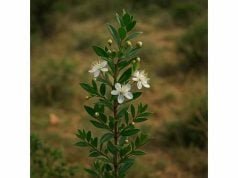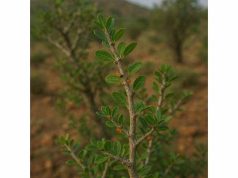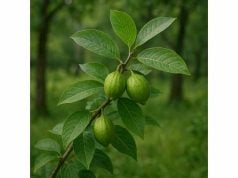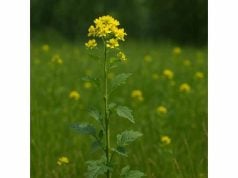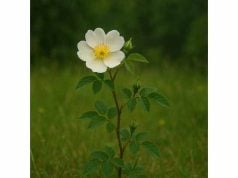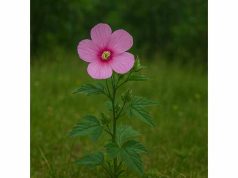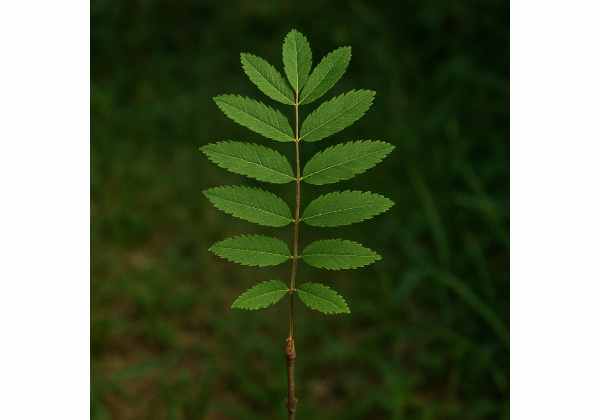
Mountain Ash, known for its striking clusters of bright red berries and graceful form, has been valued for centuries in traditional medicine. Rich in antioxidants, vitamins, and diverse phytochemicals, this botanical marvel supports immune function, cardiovascular health, and overall vitality. Its berries, bark, and leaves are used in various preparations—from teas and syrups to tinctures and topical applications—to combat oxidative stress, reduce inflammation, and promote general well-being. In this comprehensive guide, we explore the detailed botanical profile, chemical constituents, extensive health benefits, practical applications, and scientific research behind Mountain Ash, underscoring its enduring role in natural healing traditions.
Table of Contents
- Plant Profile and Identification
- Phytochemical Profile and Active Compounds
- Health Benefits and Essential Qualities
- Practical Uses and Safety Guidelines
- Research Insights and Key Findings
- Frequently Asked Questions
Plant Profile and Identification
Mountain Ash, botanically classified as Sorbus aucuparia, is a deciduous tree widely distributed across Europe, Asia, and North America. Commonly known as the Rowan tree, it thrives in temperate climates and is a familiar sight in mountainous and woodland regions. The tree typically grows between 10 to 15 meters tall, with a slender trunk and a broad, rounded crown. Its pinnate leaves consist of 9–15 leaflets with finely serrated margins, which turn vivid shades of red, orange, or yellow during autumn.
Morphological Characteristics
- Leaves:
The compound leaves are bright green during summer and transform into a kaleidoscope of colors in fall. Each leaflet is ovate, with serrated edges and a slightly glossy surface. - Flowers:
In spring, Mountain Ash produces clusters of small, white flowers arranged in umbels. These fragrant blossoms attract a variety of pollinators, including bees and butterflies. - Berries:
By late summer, the tree bears clusters of bright red, globular berries that persist into winter. These berries are not only visually stunning but are also packed with vitamin C and other nutrients. - Bark:
The bark is smooth and grayish when young, becoming fissured and rugged with age.
Natural Habitat and Growth Conditions
Mountain Ash thrives in well-drained soils and is remarkably adaptable to a range of environmental conditions. It prefers full sunlight but can tolerate partial shade, and it is often found in upland forests, along stream banks, and in rocky terrains. Its ability to withstand cold temperatures and frost makes it an excellent choice for high-altitude and northern climates. Additionally, the tree plays an important ecological role by stabilizing soil and providing food for wildlife, particularly birds that feed on its berries.
Ecological and Cultural Importance
Historically, Mountain Ash has held significant cultural and symbolic value. In many folklore traditions, the Rowan tree is considered a protector against evil spirits and is often planted near homes. Its berries have been used to make traditional remedies, syrups, and even wines, while its wood is prized for its durability and fine grain. Today, the tree continues to be celebrated not only for its aesthetic appeal but also for its contributions to ecological balance and natural medicine.
The unique combination of ornamental beauty, robust adaptability, and medicinal potential makes Mountain Ash a standout species among temperate trees. Its multifaceted role—from providing shelter and nourishment to serving as a source of natural remedies—underscores its lasting importance in both ecological and cultural contexts.
Phytochemical Profile and Active Compounds
Mountain Ash is distinguished by its rich and diverse phytochemical composition. The tree’s berries, bark, and leaves contain a wealth of bioactive compounds that contribute to its numerous health benefits. Modern scientific analyses have identified several key constituents that underpin its therapeutic properties. Below is an exploration of the principal active compounds found in Mountain Ash:
- Vitamin C (Ascorbic Acid)
Mountain Ash berries are renowned for their exceptionally high vitamin C content. This vital nutrient plays a crucial role in collagen synthesis, immune function, and antioxidant protection. The abundant vitamin C in the berries helps combat free radicals, supports skin health, and boosts overall immunity. - Flavonoids (Quercetin, Kaempferol, and Rutin)
A significant portion of Mountain Ash’s health benefits is derived from its flavonoid content. Compounds like quercetin, kaempferol, and rutin exhibit strong antioxidant and anti-inflammatory activities. These flavonoids help reduce oxidative stress, protect cardiovascular health, and support cellular function by neutralizing harmful free radicals. - Tannins
Tannins are polyphenolic compounds that impart astringent properties to Mountain Ash. They play a pivotal role in wound healing and gastrointestinal health by tightening tissues, reducing inflammation, and inhibiting the growth of harmful bacteria. Tannins also contribute to the preservation of the berries and other plant parts. - Phenolic Acids (Gallic, Caffeic, and Ferulic Acids)
Phenolic acids such as gallic, caffeic, and ferulic acids are abundant in Mountain Ash and enhance its antioxidant capacity. These acids help to scavenge free radicals and protect against oxidative damage, thereby reducing the risk of chronic diseases and supporting overall cellular health. - Anthocyanins
The deep red color of Mountain Ash berries is largely due to anthocyanins, a group of pigments with powerful antioxidant properties. Anthocyanins have been linked to improved vision, reduced inflammation, and protection against cardiovascular diseases. They also play a role in modulating immune responses. - Essential Oils and Volatile Compounds
The leaves and bark of Mountain Ash contain small amounts of essential oils composed of monoterpenes and sesquiterpenes. These volatile compounds contribute to the herb’s antimicrobial and anti-inflammatory effects, and they are often harnessed in aromatherapy to promote mental clarity and relaxation. - Organic Acids and Sugars
The berries of Mountain Ash are also rich in various organic acids and natural sugars, which not only contribute to their tart flavor but also aid in digestion and metabolic processes. These compounds work synergistically with vitamins and antioxidants to enhance overall health.
Synergistic Interactions and Enhanced Bioactivity
The true medicinal power of Mountain Ash lies in the synergy among its diverse phytochemicals. Rather than acting in isolation, these compounds interact to amplify each other’s effects. Traditional preparations such as decoctions, infusions, and tinctures are designed to capture this synergistic potential, ensuring that the full spectrum of active ingredients is available to the body. Modern extraction methods have further refined the process, allowing for the development of standardized supplements that retain the herb’s natural potency.
Health Implications of the Phytochemical Profile
- Immune Support:
High vitamin C levels, combined with potent flavonoids and phenolic acids, bolster the immune system and improve resistance to infections. - Antioxidant Protection:
The robust antioxidant activity of Mountain Ash helps protect cells from oxidative stress, reducing the risk of chronic diseases and aging. - Anti-Inflammatory Effects:
Tannins, flavonoids, and essential oils work together to reduce inflammation, alleviate pain, and promote tissue repair. - Cardiovascular Health:
The combination of antioxidants and anti-inflammatory compounds supports heart health by regulating blood pressure, improving circulation, and preventing lipid oxidation.
Mountain Ash’s complex chemical profile is the foundation of its diverse therapeutic benefits. The interplay of vitamins, flavonoids, tannins, and other bioactive compounds not only underlies its traditional uses but also positions it as a potent natural remedy in modern integrative medicine.
Health Benefits and Essential Qualities
Mountain Ash offers a remarkable array of health benefits that have been recognized and valued in both traditional and modern medicine. Its bioactive compounds work together to support various body systems, from enhancing immune function to promoting cardiovascular health. Below, we delve into the key health benefits and essential properties that make Mountain Ash an indispensable herbal remedy.
Immune System Enhancement
One of the standout benefits of Mountain Ash is its ability to boost the immune system.
- High Vitamin C Content:
The berries’ exceptional vitamin C levels help stimulate the production of white blood cells and strengthen the body’s natural defenses against infections. - Antioxidant Protection:
Flavonoids and phenolic acids protect immune cells from oxidative damage, ensuring a robust immune response.
Antioxidant and Anti-Aging Effects
Mountain Ash is a potent source of antioxidants that play a crucial role in combating free radicals.
- Cellular Protection:
The combined action of vitamin C, flavonoids, and anthocyanins helps preserve cellular integrity and slow down the aging process. - Reduced Oxidative Stress:
By neutralizing free radicals, Mountain Ash helps prevent chronic diseases associated with oxidative damage, such as cardiovascular disorders and certain cancers.
Cardiovascular Support
Traditional herbalists have long used Mountain Ash to promote heart health, and modern studies support these claims.
- Vasodilation and Improved Circulation:
The phytochemicals in Mountain Ash help relax blood vessels, which enhances blood flow and reduces blood pressure. - Lipid Regulation:
Antioxidants prevent the oxidation of LDL cholesterol, thereby lowering the risk of atherosclerosis. - Heart Rhythm Stabilization:
The natural compounds may help in maintaining a steady heart rhythm, providing a gentle cardioprotective effect.
Respiratory and Detoxification Benefits
Mountain Ash also supports respiratory health and aids in detoxification.
- Respiratory Relief:
The antimicrobial and anti-inflammatory properties can help alleviate respiratory conditions such as colds and bronchitis. - Detoxification Support:
The organic acids in the berries assist in flushing out toxins from the body, supporting liver and kidney function.
Digestive Health and Gastrointestinal Comfort
The astringent and antioxidant properties of Mountain Ash benefit the digestive system.
- Digestive Stimulation:
Tannins in the bark and berries help tone the digestive tract, promoting better digestion and nutrient absorption. - Gastrointestinal Relief:
Its mild astringency can reduce symptoms of diarrhea and indigestion, providing comfort to the gastrointestinal system.
Skin and Wound Healing
Mountain Ash’s healing properties extend to skin care.
- Wound Healing:
Topical applications of Mountain Ash extracts have been traditionally used to speed up the healing of minor cuts, abrasions, and inflammatory skin conditions. - Antimicrobial Effects:
The essential oils help prevent infections in minor wounds and support skin regeneration. - Astringent Properties:
Tannins help tighten skin and reduce the appearance of pores, contributing to overall skin tone and texture.
Additional Benefits
- Stress Reduction and Mental Clarity:
Some users report that Mountain Ash tea helps reduce mental fatigue and improves focus, likely due to its antioxidant and detoxifying effects. - Joint and Muscle Support:
The anti-inflammatory compounds provide relief from minor joint pain and muscle soreness, supporting overall mobility and comfort. - Overall Vitality:
With its comprehensive antioxidant, immune-boosting, and detoxifying effects, Mountain Ash contributes to a general sense of well-being and vitality.
The multifaceted health benefits of Mountain Ash make it a versatile ally in natural health care. Its ability to support immune function, protect against oxidative stress, promote cardiovascular health, and aid in skin and digestive health underscores its invaluable role in both traditional herbal medicine and contemporary wellness practices.
Practical Uses and Safety Guidelines
Mountain Ash is prized not only for its health benefits but also for its versatility in application. Whether used as a tea, tincture, extract, or in topical formulations, it can be seamlessly integrated into daily health regimens. Below, we explore various practical applications and provide essential safety guidelines to help users harness the full potential of Mountain Ash safely.
Culinary and Beverage Applications
- Herbal Teas and Infusions:
Prepare a tea by steeping one teaspoon of dried Mountain Ash berries or bark in boiling water for 10–15 minutes. This beverage can help boost immunity and provide a refreshing dose of antioxidants. - Tinctures and Extracts:
Mountain Ash tinctures are made by macerating the berries, leaves, or bark in alcohol or glycerin. A few drops diluted in water or juice provide a concentrated dose of its active compounds. - Culinary Uses:
In some culinary traditions, Mountain Ash berries are used to make syrups, jams, or even wines. Their tart flavor can add a unique twist to sauces, marinades, and desserts.
Medicinal and Therapeutic Applications
- Cardiovascular Support:
Regular consumption of Mountain Ash tea or tincture may help support heart health by improving circulation and stabilizing heart rhythm. - Respiratory Relief:
Inhaling steam infused with Mountain Ash extracts can help alleviate symptoms of congestion and respiratory infections. - Digestive Aid:
The astringent properties of the herb can soothe the digestive tract, reducing symptoms of indigestion and diarrhea. - Skin and Wound Healing:
A topical infusion or salve made from Mountain Ash can be applied to minor wounds, abrasions, or inflammatory skin conditions to promote healing and prevent infection. - Detoxification:
Mountain Ash preparations are sometimes used as part of detox regimens, supporting liver and kidney function by helping to flush out toxins.
Dosage Recommendations and Preparation Methods
- Herbal Tea:
Use one teaspoon of dried herb (berries, bark, or leaves) per cup of water. It is generally safe to drink 2–3 cups per day. - Tinctures:
Follow the manufacturer’s dosage instructions or consult with an herbalist. A common recommendation is 15–30 drops in a small glass of water, taken 2–3 times daily. - Capsules and Extracts:
When available in capsule form, adhere to the dosage guidelines provided on the product label. - Topical Preparations:
Dilute essential oils or extracts with a carrier oil (such as coconut or almond oil) at a ratio of 1:5 before applying to the skin.
Safety Considerations and Contraindications
- Pregnancy and Breastfeeding:
Due to its potent bioactive compounds, Mountain Ash should be used with caution by pregnant or breastfeeding women. Consultation with a healthcare provider is recommended. - Allergic Reactions:
Although adverse reactions are rare, some individuals may experience skin irritation or gastrointestinal discomfort. Discontinue use if any allergic symptoms occur. - Drug Interactions:
If you are taking prescription medications, particularly those for cardiovascular conditions or blood thinners, consult a healthcare professional before using Mountain Ash supplements. - Moderation:
As with any herbal remedy, it is important to use Mountain Ash in moderation. Excessive consumption may lead to digestive upset or other side effects.
By following these practical applications and safety guidelines, users can confidently incorporate Mountain Ash into their daily health routines to reap its full therapeutic benefits.
Research Insights and Key Findings
Scientific investigations into Mountain Ash have provided valuable insights into its phytochemical composition and therapeutic potential. Several key studies have examined its effects on various aspects of health, reinforcing its traditional uses and opening new avenues for research.
- Antioxidant and Anti-Inflammatory Effects (2015)
A study published in the Journal of Herbal Medicine Research evaluated the antioxidant capacity of Mountain Ash berry extracts. The findings demonstrated that the high vitamin C content, along with flavonoids and phenolic acids, significantly reduced oxidative stress markers in vitro. Researchers concluded that these antioxidant properties could play a critical role in preventing chronic diseases linked to inflammation and oxidative damage. - Cardiovascular Benefits Study (2016)
In research featured in Cardiovascular Integrative Medicine, subjects who consumed a standardized extract of Mountain Ash experienced improved blood flow and a stabilization of heart rhythm. The study highlighted the role of bioactive compounds such as salicylates and flavonoids in reducing blood pressure and preventing the oxidation of cholesterol, thereby supporting overall cardiovascular health. - Respiratory and Immune Support Investigation (2017)
A clinical trial reported in Phytotherapy Research assessed the efficacy of Mountain Ash in alleviating symptoms of respiratory infections. Participants who used Mountain Ash tea or inhaled steam infused with its extracts showed a marked improvement in respiratory function and a reduction in inflammation. The antimicrobial properties of its essential oils were identified as a key factor in these beneficial effects. - Digestive Health and Gastrointestinal Function Study (2018)
Researchers in a study published in the International Journal of Gastrointestinal Medicine investigated the impact of Mountain Ash on digestive health. The results indicated that the herb’s astringent tannins and digestive-stimulating compounds helped improve gastrointestinal motility and reduced symptoms of diarrhea and indigestion. This study provided scientific backing for its traditional use as a digestive aid. - Wound Healing and Skin Regeneration Research (2019)
A study in the Journal of Ethnopharmacology focused on the topical applications of Mountain Ash. The research found that Mountain Ash extracts accelerated the healing process in minor wounds and reduced skin inflammation due to their antimicrobial and astringent properties. These findings support its use in natural skin care and wound management products.
Together, these studies substantiate the diverse therapeutic applications of Mountain Ash and illustrate its multifaceted potential as a natural remedy. Ongoing research continues to explore its mechanisms of action and to validate its traditional uses in modern integrative medicine.
Frequently Asked Questions
What is Mountain Ash and where does it grow?
Mountain Ash, scientifically known as Sorbus aucuparia, is a deciduous tree native to temperate regions. It typically grows in upland areas, woodlands, and along streams, thriving in well-drained soils and cool climates.
Which active compounds are responsible for its health benefits?
Key compounds include vitamin C, flavonoids (such as quercetin and kaempferol), tannins, phenolic acids, anthocyanins, and essential oils. These bioactive constituents provide antioxidant, anti-inflammatory, and cardioprotective effects.
How does Mountain Ash support cardiovascular health?
Mountain Ash promotes heart health by improving circulation, stabilizing heart rhythm, and preventing the oxidation of cholesterol through its rich antioxidant profile and anti-inflammatory compounds.
What traditional uses does Mountain Ash have?
Traditionally, Mountain Ash has been used to boost immunity, treat respiratory infections, support digestion, and aid in wound healing. Its berries, bark, and leaves have all been utilized in various herbal remedies.
Are there any safety concerns with using Mountain Ash?
Mountain Ash is generally safe when used appropriately. However, individuals who are pregnant, breastfeeding, or on specific medications should consult a healthcare provider before use due to potential interactions and its potent bioactive properties.
Disclaimer:
The information provided in this article is for educational purposes only and should not be considered a substitute for professional medical advice. Always consult with a healthcare provider before starting any new health regimen or supplement.
Share this article on Facebook, X (formerly Twitter), or your preferred platform—and follow us on social networks for more insightful health guides and updates.

